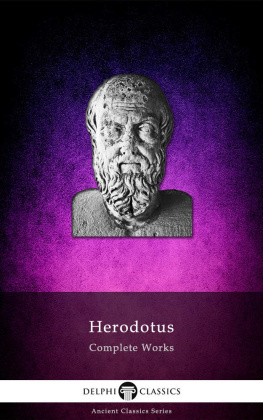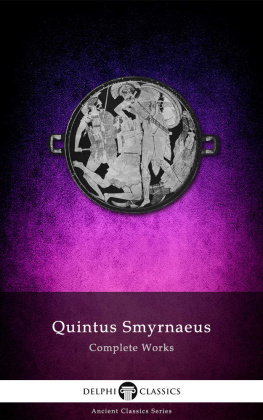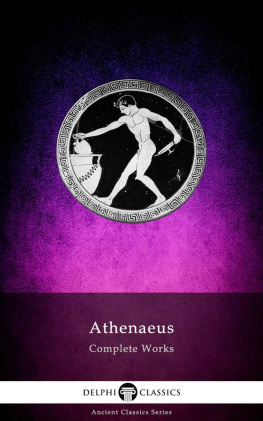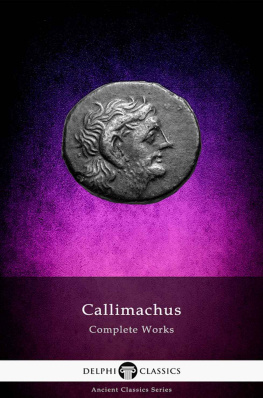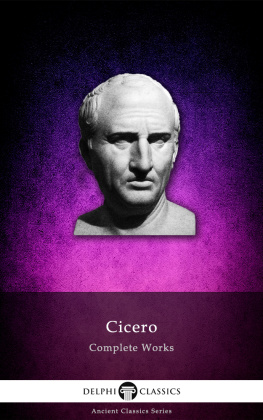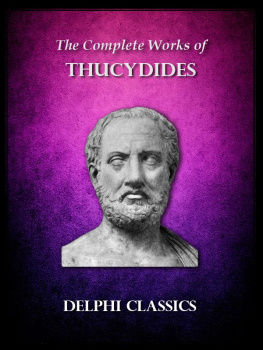Hippocrates of Kos - Complete Works of Hippocrates (Delphi Classics) (Delphi Ancient Classics Book 42)
Here you can read online Hippocrates of Kos - Complete Works of Hippocrates (Delphi Classics) (Delphi Ancient Classics Book 42) full text of the book (entire story) in english for free. Download pdf and epub, get meaning, cover and reviews about this ebook. year: 2015, publisher: Delphi Classics, genre: Science. Description of the work, (preface) as well as reviews are available. Best literature library LitArk.com created for fans of good reading and offers a wide selection of genres:
Romance novel
Science fiction
Adventure
Detective
Science
History
Home and family
Prose
Art
Politics
Computer
Non-fiction
Religion
Business
Children
Humor
Choose a favorite category and find really read worthwhile books. Enjoy immersion in the world of imagination, feel the emotions of the characters or learn something new for yourself, make an fascinating discovery.

- Book:Complete Works of Hippocrates (Delphi Classics) (Delphi Ancient Classics Book 42)
- Author:
- Publisher:Delphi Classics
- Genre:
- Year:2015
- Rating:5 / 5
- Favourites:Add to favourites
- Your mark:
- 100
- 1
- 2
- 3
- 4
- 5
Complete Works of Hippocrates (Delphi Classics) (Delphi Ancient Classics Book 42): summary, description and annotation
We offer to read an annotation, description, summary or preface (depends on what the author of the book "Complete Works of Hippocrates (Delphi Classics) (Delphi Ancient Classics Book 42)" wrote himself). If you haven't found the necessary information about the book — write in the comments, we will try to find it.
Hippocrates of Kos: author's other books
Who wrote Complete Works of Hippocrates (Delphi Classics) (Delphi Ancient Classics Book 42)? Find out the surname, the name of the author of the book and a list of all author's works by series.
Complete Works of Hippocrates (Delphi Classics) (Delphi Ancient Classics Book 42) — read online for free the complete book (whole text) full work
Below is the text of the book, divided by pages. System saving the place of the last page read, allows you to conveniently read the book "Complete Works of Hippocrates (Delphi Classics) (Delphi Ancient Classics Book 42)" online for free, without having to search again every time where you left off. Put a bookmark, and you can go to the page where you finished reading at any time.
Font size:
Interval:
Bookmark:
The Complete Works of
HIPPOCRATES
(c. 460 c. 370 BC)

Contents

Delphi Classics 2015
Version 1

The Complete Works of
HIPPOCRATES

By Delphi Classics, 2015
Complete Works of Hippocrates
First published in the United Kingdom in 2015 by Delphi Classics.
Delphi Classics, 2015.
All rights reserved. No part of this publication may be reproduced, stored in a retrieval system, or transmitted, in any form or by any means, without the prior permission in writing of the publisher, nor be otherwise circulated in any form other than that in which it is published.
Delphi Classics
is an imprint of
Delphi Publishing Ltd
Hastings, East Sussex
United Kingdom
Contact: sales@delphiclassics.com
www.delphiclassics.com

Harbour of Cos (ancient Kos) Hippocrates birthplace

OR, TRADITION IN MEDICINE
Translated by Charles Darwin Adams
This treatise is regarded as one of the most significant works of the Hippocratic Corpus, the collection of approximately sixty writings covering all areas of medical thought and practice, which are traditionally associated with Hippocrates (c. 460 BC c. 370 BC), the father of Western medicine. In more recent times, thirteen of the works have been identified as being possibly by the hand of Hippocrates, with On Ancient Medicine being a key text of this number. The origins of the Hippocratic Corpus can be traced to the sixth and fifth centuries BC in Italy.
There were two seminal schools of Western medical thought; Agrigentum on the southern coast of Sicily and Croton on the west coast of the Gulf of Taranto. Agrigentum was the home of Empedocles, while Croton belonged to the Pythagorean sect of medical philosophy. The school of Agrigentum and Empedocles placed great emphasis on cure by contraries, while the school of Croton rejected this notion, championing the medical philosophy that perceived the human organism consists of an infinite number of humours. The first medical philosopher of the school of Croton was Alcmaeon, who argued that the maintenance of good health required a balance of the powers of moist and dry, cold and hot, bitter and sweet. He argued that sickness arises when there is an imbalance within the human organism, caused by the predominance of one power over another. In the Agrigentum school of thought Empedocles hypothesised that the universe consisted of four elements: earth, water, air and fire. On the basis of these four elements he sought to account for the origin of matter. Matter or the universe was generated out of these four elements and their mutual attraction and repulsion.
The conflict between these two schools of thought became manifest in their medical philosophies. Whereas, Alcmaeon argued that there were indefinite number of diverse qualities that made up the human organism, Empedocles believed that there were four concrete or substantial elements. Although it is Empedocles medical philosophy that ultimately inspires the humoral doctrine of human nature, it is Alcmaeons theory that provides the backdrop to the medical therapeutic doctrine proposed in On Ancient Medicine . Alcmaeons argument that there are an infinite number of causes for disease that cannot be simply organised into categories is the basic operating assumption of empirical medicine. Therefore medical knowledge continuously expanded thorough a firsthand experience and observation of the human organism within nature. It is in this light that On Ancient Medicine should be seen as an attempt by Alcmaeons followers and the empirical school of thought to respond to and critique the Empedoclean or humoral theory of medicine.
On Ancient Medicine is formed of three parts. In chapters 119 the author responds to the supporters of the hypothesis theory of medicine, arguing that the exploration of medicine itself reveals the human organism as a blend of diverse substances or humours. Having set forth this humoral theory, he then critiques the hypothesis theory proposed by his opponents as being an oversimplified conception of the cause of disease. He then discusses his own theory and method employed in its discovery (chapters 20-24), before responding to the charge that ancient medicine is not a genuine medical art because it has limited accuracy. These arguments must be seen in the light of the authors theory of human physiology (chapters 9-12).
It is generally believed that On Ancient Medicine was written between 440 and 350 BC, with several hints suggesting a date in the late fifth century. In particular, the author refers to Empedocles (490430 B.C.) as the motivation of the method he attacks, which would suggest a date not long after Empedocles peak of activity.
Since the work of mile Littr in the nineteenth century, the treatise has been scrutinised in thorough detail, in an attempt to determine which of the works in the Hippocratic Corpus were composed by Hippocrates. Littr was the scholar most associated with advocating that On Ancient Medicine was written by Hippocrates, as he believed that it was the work to which Plato was referring to in The Phaedrus . However, it is difficult to establish any certainty as to whether the historical Hippocrates actually wrote the treatise On Ancient Medicine , due to the scanty surviving evidence from references in Plato and Aristotle.
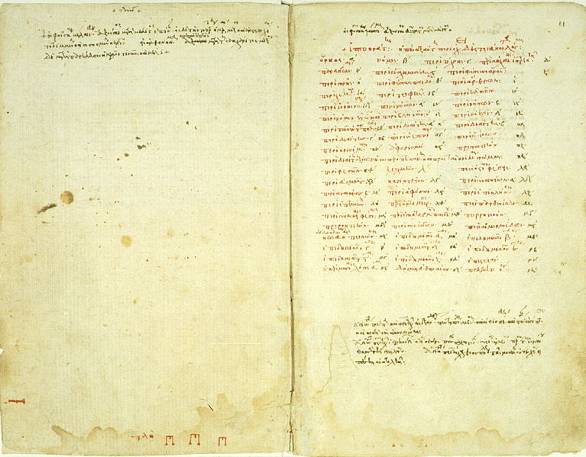
Vaticanus graecus 277, 10v-11r a fourteenth century Hippocratic Corpus manuscript.
ON ANCIENT MEDICINE
Whoever having undertaken to speak or write on Medicine, have first laid down for themselves some hypothesis to their argument, such as hot, or cold, or moist, or dry, or whatever else they choose (thus reducing their subject within a narrow compass, and supposing only one or two original causes of diseases or of death among mankind), are all clearly mistaken in much that they say; and this is the more reprehensible as relating to an art which all men avail themselves of on the most important occasions, and the good operators and practitioners in which they hold in especial honor. For there are practitioners, some bad and some far otherwise, which, if there had been no such thing as Medicine, and if nothing had been investigated or found out in it, would not have been the case, but all would have been equally unskilled and ignorant of it, and everything concerning the sick would have been directed by chance. But now it is not so; for, as in all the other arts, those who practise them differ much from one another in dexterity and knowledge, so is it in like manner with Medicine. Wherefore I have not thought that it stood in need of an empty hypothesis, like those subjects which are occult and dubious, in attempting to handle which it is necessary to use some hypothesis; as, for example, with regard to things above us and things below the earth; if any one should treat of these and undertake to declare how they are constituted, the reader or hearer could not find out, whether what is delivered be true or false; for there is nothing which can be referred to in order to discover the truth.
Next pageFont size:
Interval:
Bookmark:
Similar books «Complete Works of Hippocrates (Delphi Classics) (Delphi Ancient Classics Book 42)»
Look at similar books to Complete Works of Hippocrates (Delphi Classics) (Delphi Ancient Classics Book 42). We have selected literature similar in name and meaning in the hope of providing readers with more options to find new, interesting, not yet read works.
Discussion, reviews of the book Complete Works of Hippocrates (Delphi Classics) (Delphi Ancient Classics Book 42) and just readers' own opinions. Leave your comments, write what you think about the work, its meaning or the main characters. Specify what exactly you liked and what you didn't like, and why you think so.

